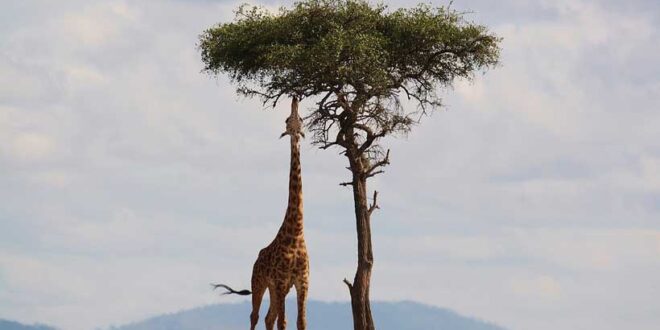Hopes that the tourism industry would rebound from the devastating effects of the COVID-19 pandemic have been dented by the wildfire spread of the Omicron variant. In an exclusive interview with UN News, Zoritsa Urosevic, Executive Director of the UN World Tourism Organization (UNWTO), called for new ideas to restart the sector.
The United Nations World Tourism Organization (UNWTO) is one of the 15 specialized agencies of the United Nations, which aims to promote tourism around the world, and make it the driving force of economic growth and sustainable development.

Speaking to Bessie Du of UN News at the end of 2021, shortly after the agency’s general assembly, Ms. Urosevic began by outlining the devastating impact the COVID-19 epidemic continues to have on tourism, and the prospects for recovery.
The interview has been edited for clarity and length.
Zoritsa Urosevic: Tourism has been the sector hit hardest by the crisis, as well as all the people and the livelihoods that depends on it. Basically, this has been a very tough two years, but we see that, in the future, we will have to fully rethink the sector, and that’s maybe an opportunity.
Developed countries were much better prepared to support the hit, mostly with financial packages to support the industry and small businesses, and to try to preserve people’s jobs. Developing countries have been really struggling to do that.
We created the tourism recovery package, a tool to rapidly assess what needs to be done in a particular country, and we have created the first ever code for the protection of tourists, because building confidence is really a very important element for people who decide to travel.
We are totally aligned with the World Health Organization (WHO) on the importance of engaging in safer travel protocols rather than stopping travel altogether, because we know how many livelihoods depend on tourism, not only directly, but also those working in the industries that depend on the sector, such as food production, services, and manufacturing.
At a time when populations are increasingly moving to urban areas, rural development through tourism is certainly going to be one of the major trends in the sector. We have launched an initiative called Best Tourism Villages, and we are going to have a global centre for rural development of tourism.
UN News: Would you say the hit on tourism is unprecedented?
Zoritsa Urosevic: This has been certainly the biggest crisis ever for the sector. Basically, it’s like we went back 30 years in 2020. Over the last three decades, tourism has been steadily growing by around four per cent every year, so now we have a situation where we have a lot of supply, a lot of businesses, and no tourists.
Countries which had the size and purchasing power for it, such as China, were able to switch to domestic tourism, but for small, developing countries like Fiji, which have been the hardest hit by the crisis, and where tourism represents between 40 and 70 per cent of GDP, this isn’t possible.
We are calling for the harmonization of travel protocols, which have been very volatile because, even if countries reach an agreement, a change in the pandemic situation means that it can’t be applied.
The most successful countries have been the ones that were able to communicate very clearly, and spell out the protocols. Greece is a great example: they opened up in July 2020, but communicated well in advance, and many tourists who had been planning to go elsewhere went to Greece instead, because they were well informed.
UN News: How do you inform the everyday tourists on the progress made in internationally coordinating travel protocols?
Zoritsa Urosevic: We have really scaled up our presence on social media, and have a hundred times more followers than we used to have. We are trying our best, but it’s never enough, so we are very welcoming to new ideas and new opportunities.
UN News: What do you say to the people whose livelihoods depend on tourism?
Zoritsa Urosevic: First, I would say that this sector is very resilient: we all dream,and we all want to travel. For now, we need to improve education and training, but I think the future is bright. Tourists will come back, and they will be more respectful than before: there will be a new path for happiness in tourism and cultural exchange.
 Geostrategic Media Political Commentary, Analysis, Security, Defense
Geostrategic Media Political Commentary, Analysis, Security, Defense






You must be logged in to post a comment.